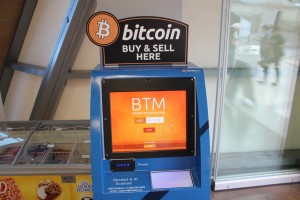JP Morgan to Charge for Bank Deposits: Bitcoin 1 – Banks 0

The nature of a bank is to secure and lend money. Or that is the supposed nature, anyway. Sometimes banks get so large that they can manipulate the entire economy. When the seas get rough, no matter how much they have in deposits, some banks refuse to lend and, therefore, stimulate the economy. Clearly, this is their prerogative – but new regulations are causing JP Morgan to discourage billions of dollars in deposits.
The regulations were outlined in the early days of the Obama presidency. In the same comprehensive reform moves that created the Consumer Financial Protection Bureau, the administration described banks that have a great deal of influence in the economy and targeted them for more stringent regulation. From page 10 of the government document outlining the new era of financial regulation:
Any financial firm whose combination of size, leverage, and interconnectedness could pose a threat to financial stability if it failed (Tier 1 FHC) should be subject to robust consolidated supervision and regulation, regardless of whether the firm owns an insured depository institution.
Negative Interest Rate
“New federal rules essentially penalize banks for holding deposits viewed as prone to fleeing during a crisis or a stressed environment,” writes Emily Glazer in the Wall Street Journal, describing how JP Morgan – the largest bank in terms of assets (not necessarily customers)– will be charging increased fees on institutional deposits of a certain size. The reason is that holding these deposits won’t be as profitable as it was before, and could very likely mean that we are about to witness a negative interest rate on large deposits. Let that sink in for a minute. While the bank will still have the right to use these deposits and lend them out, it will charge its customers for the privilege. Similar things have happened already in Europe.
So you say, Big deal, I’m not a large institution with billions in assets I’d like to shelter in a bank – why should I care? And the answer is: if they’re going to do it at that level, and things to don’t improve sufficiently, it might not be long before they get the idea that doing this to all levels of banking will be a reasonable move.
Enter Bitcoin
 As you know, with Bitcoin you can be your own bank. You don’t have to pay interest to keep your value safe. There’s a limited supply of bitcoins, so over time the value of them is going to rise. With moves like this happening on Wall Street, we can only hope there’s enough Bitcoin ATMs being built on Main Street. Economies that engage in this sort of meddling inevitably fall on their faces. American exceptionalism is at an all-time high, but it won’t save us from our flawed ways.
As you know, with Bitcoin you can be your own bank. You don’t have to pay interest to keep your value safe. There’s a limited supply of bitcoins, so over time the value of them is going to rise. With moves like this happening on Wall Street, we can only hope there’s enough Bitcoin ATMs being built on Main Street. Economies that engage in this sort of meddling inevitably fall on their faces. American exceptionalism is at an all-time high, but it won’t save us from our flawed ways.
The dollar is a store of value, and so is Bitcoin. The dollar is issued by a central authority that you have no say over, and much of the time the administration of your dollar is completely out of your hands. Meanwhile, the Bitcoin is under your control from start to finish. A few basic, best practices for handling your Bitcoin can enable you to retain value as those who loyally worship the dollar lose theirs.
Will Billions Enter the Bitcoin Space in the Coming Months?
“Among other points, the bank is expected to stress alternatives customers affected by the deposit moves can use for their excess cash,” says the article. It would certainly be historic for Bitcoin if it were brought up during this talk. If people with that much money to protect caught wind of our little open secret, you’d see the fiat price head for Mars as buy wall after buy wall fell beneath the onslaught of new orders from new parties. Who knows? Maybe Bitcoin won’t seem so crazy to them after they find out what the banks have in mind for them.